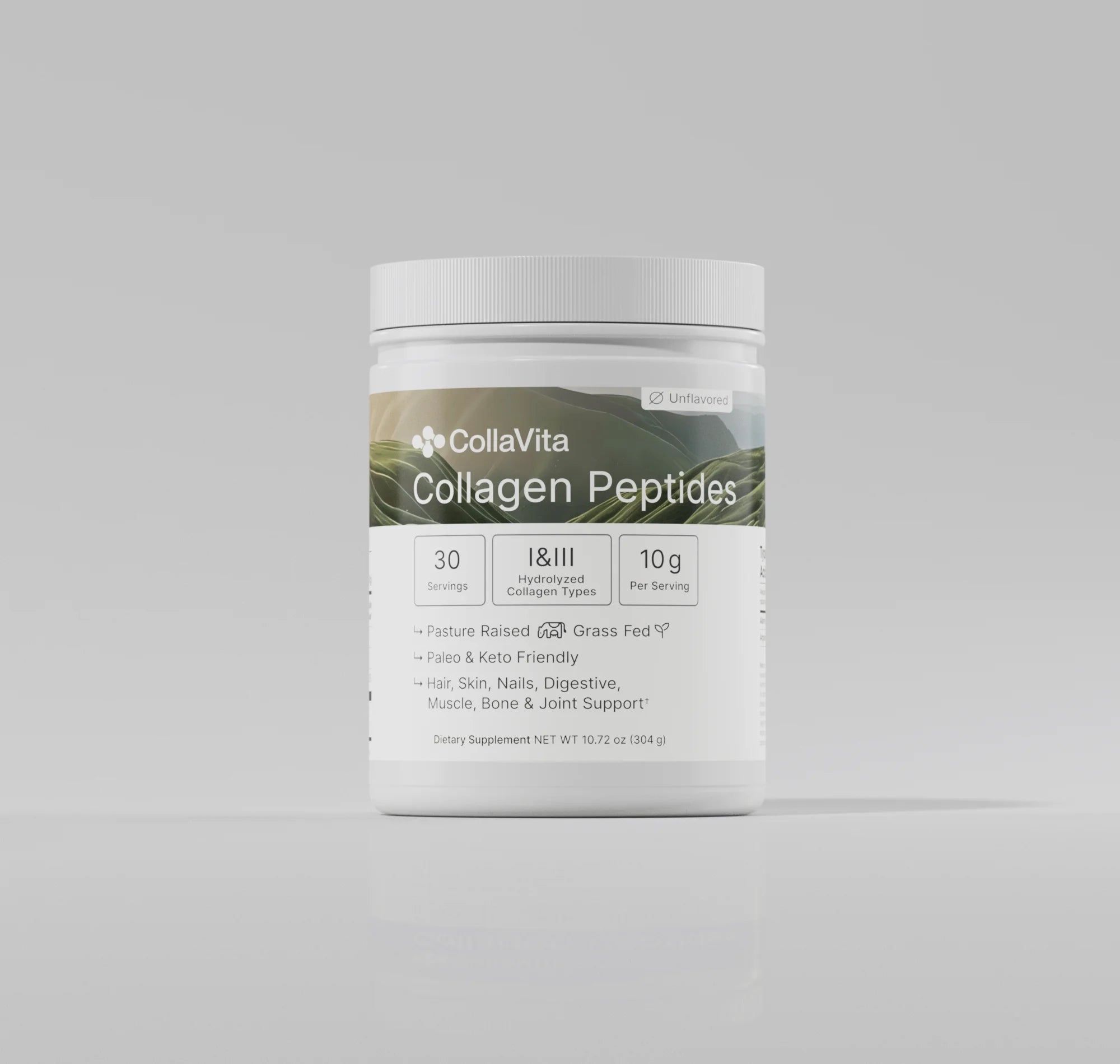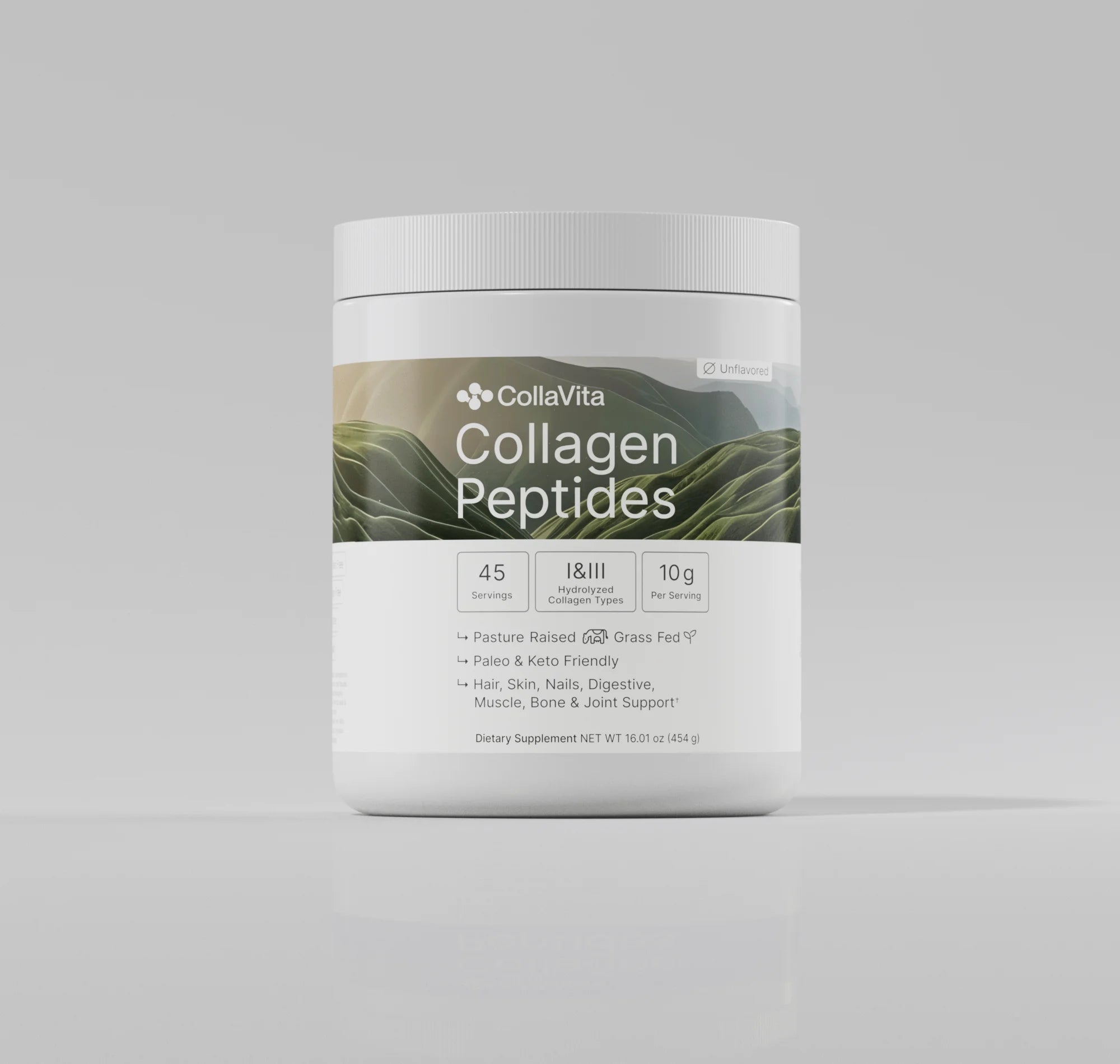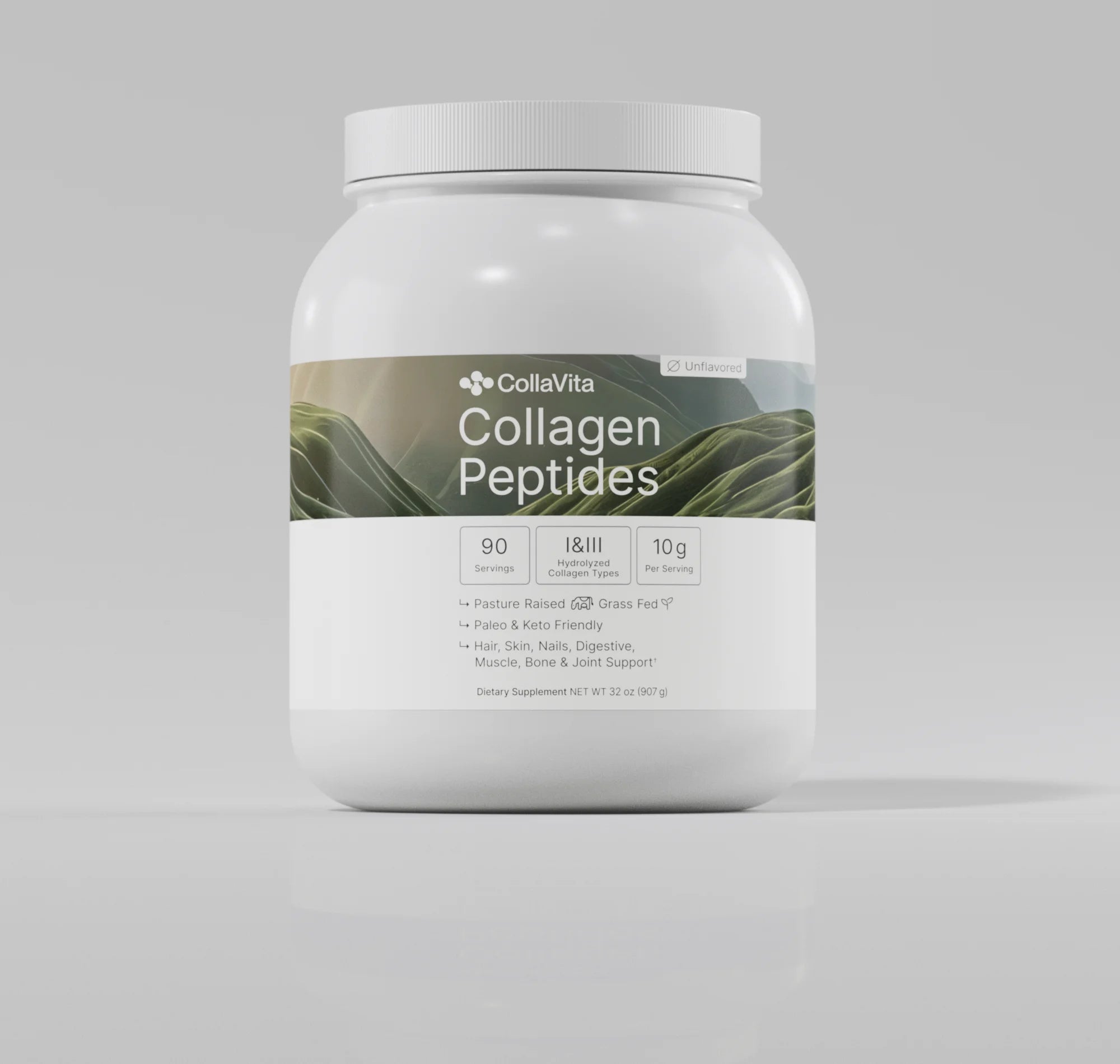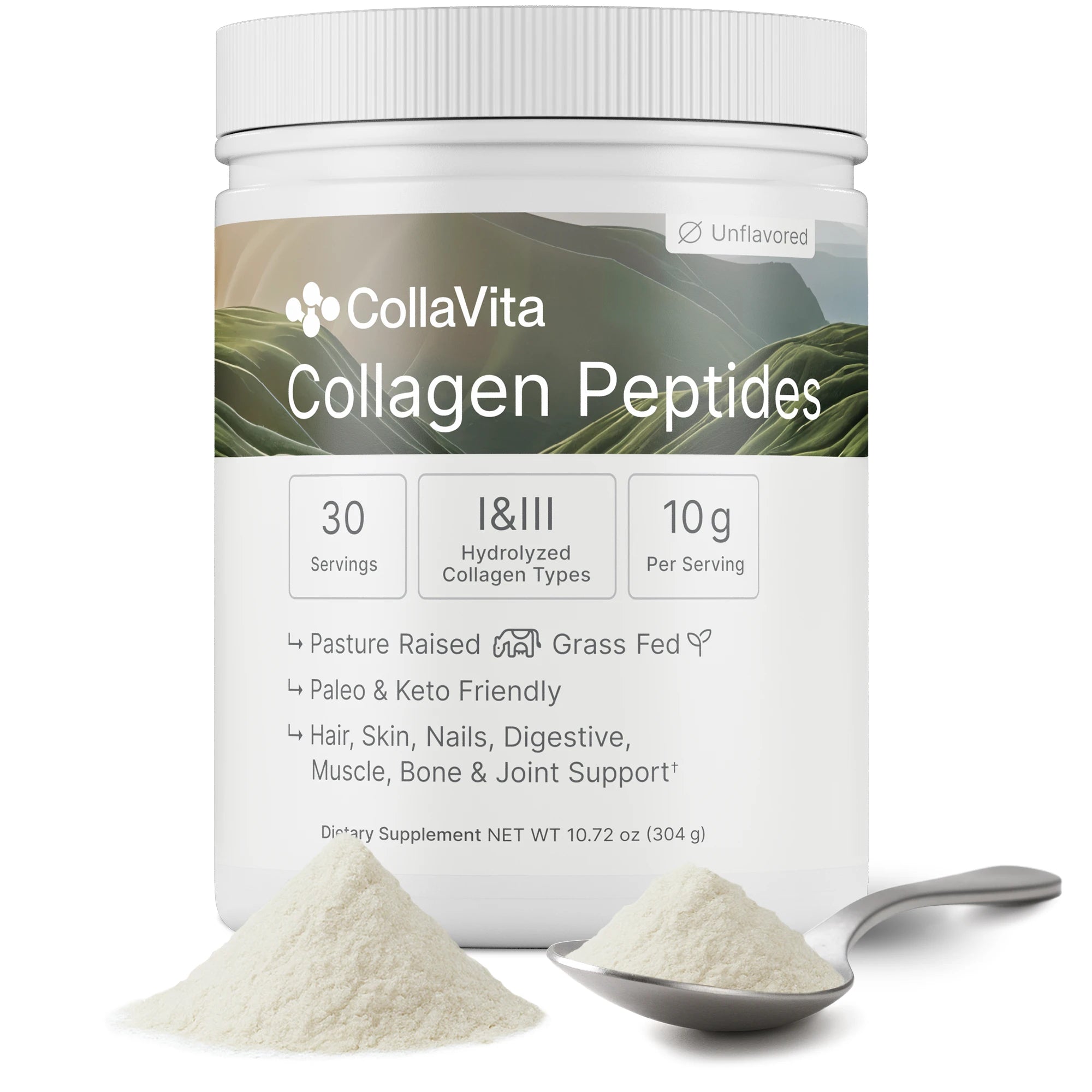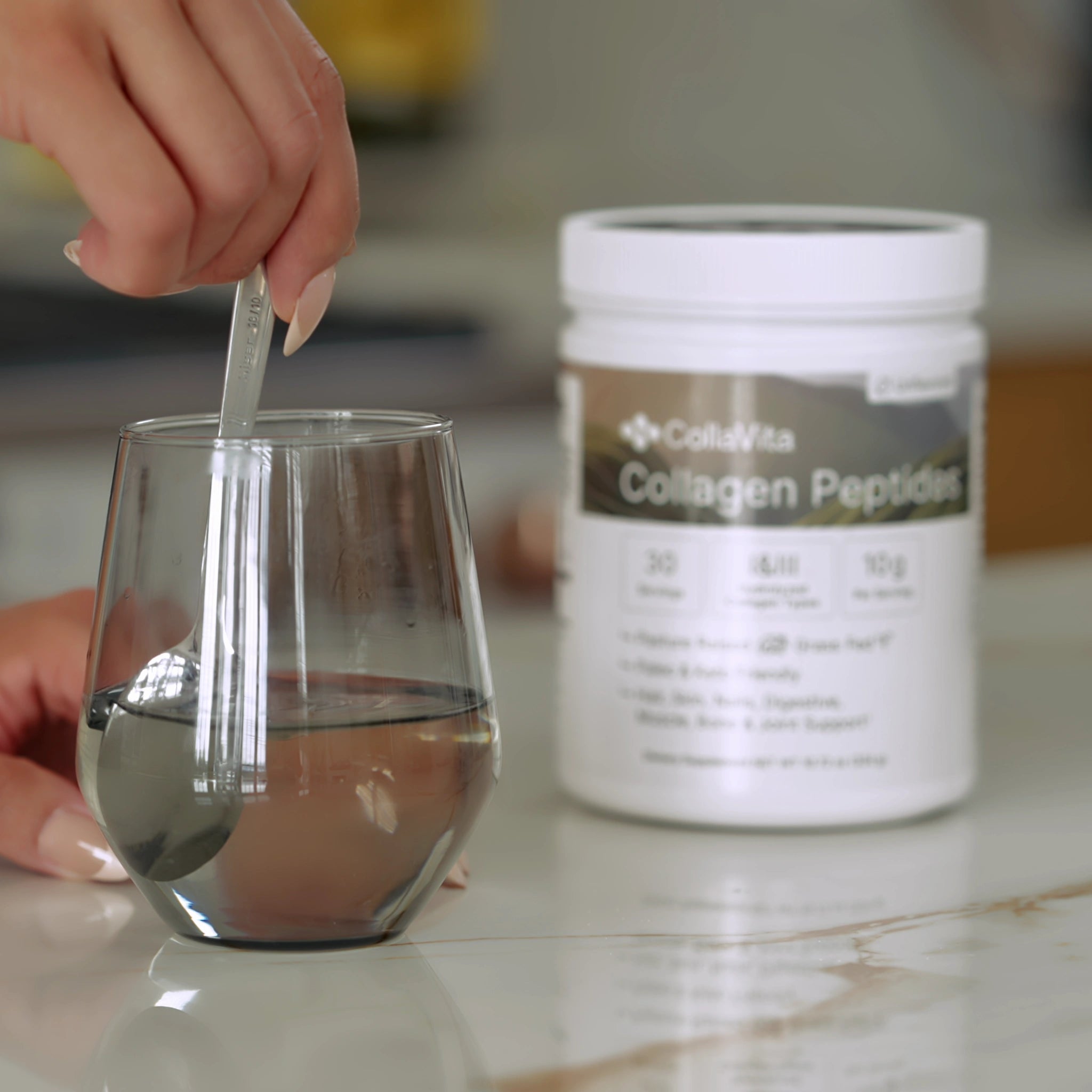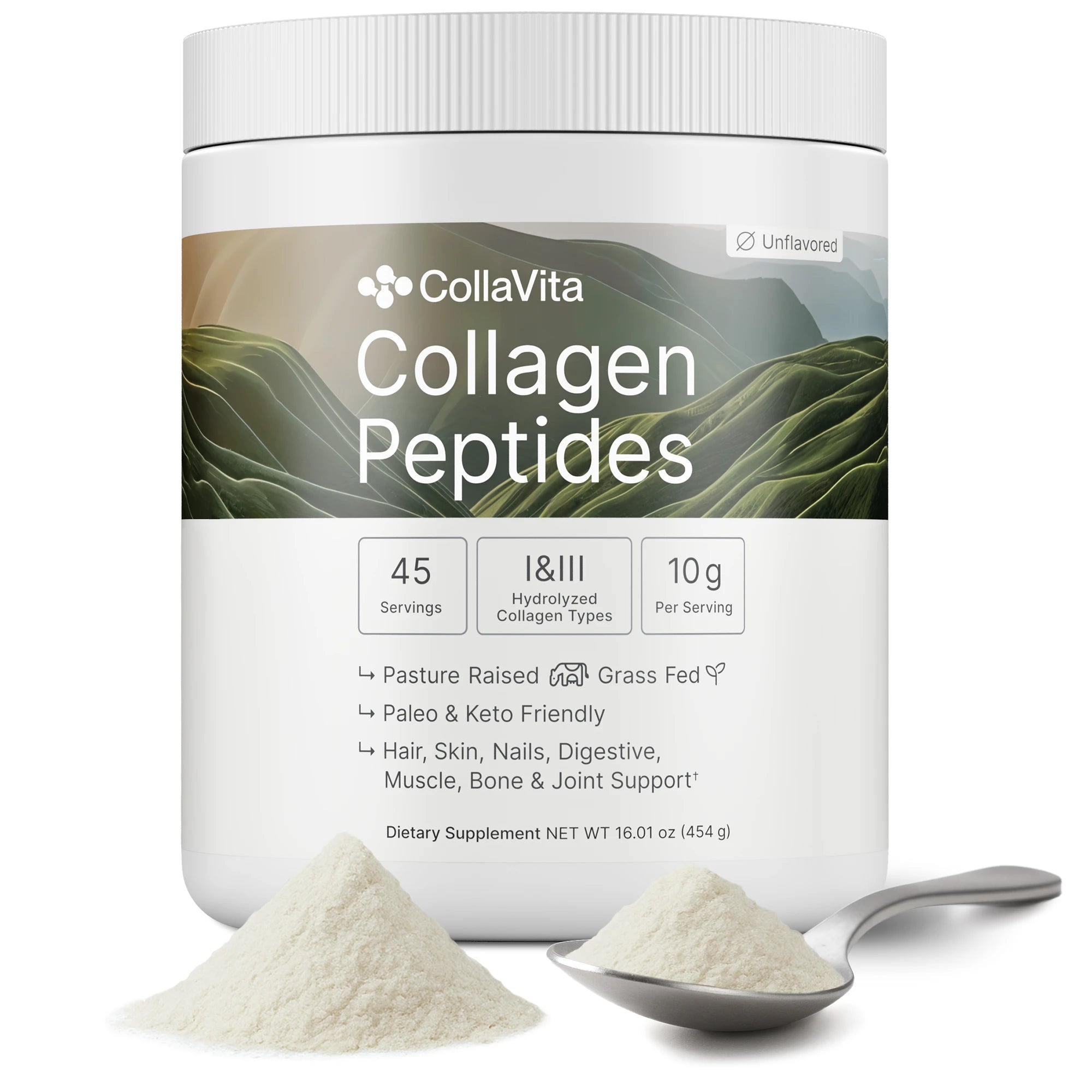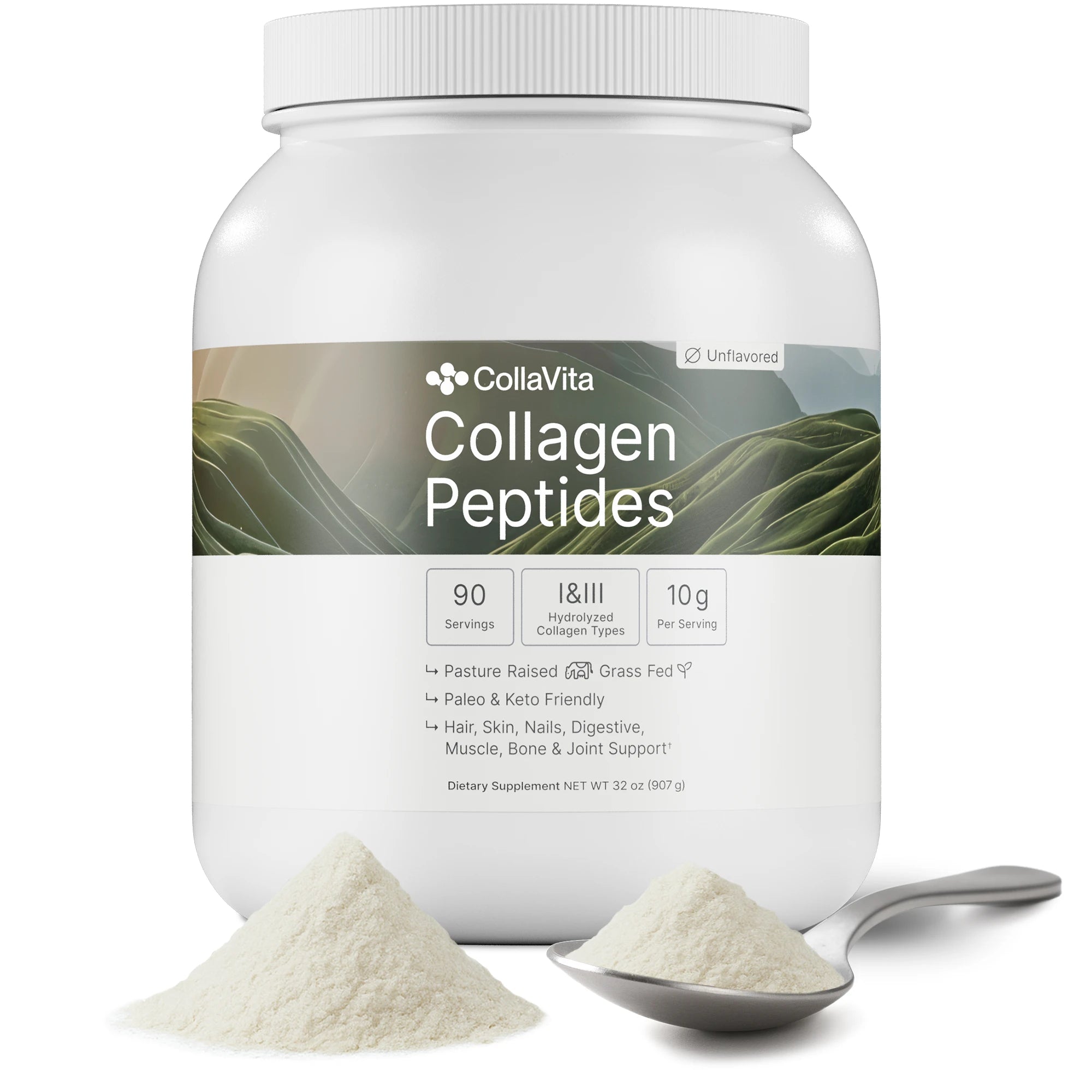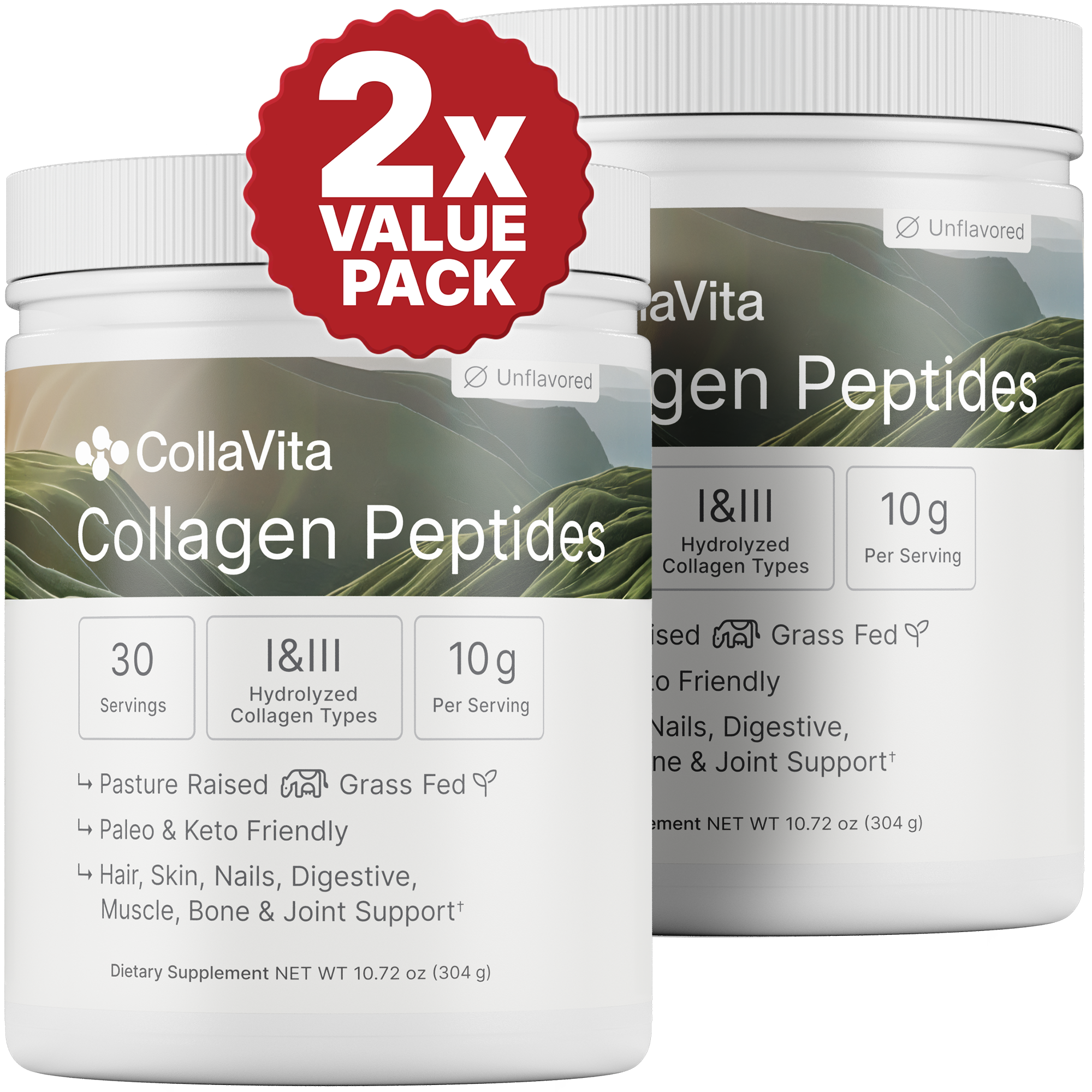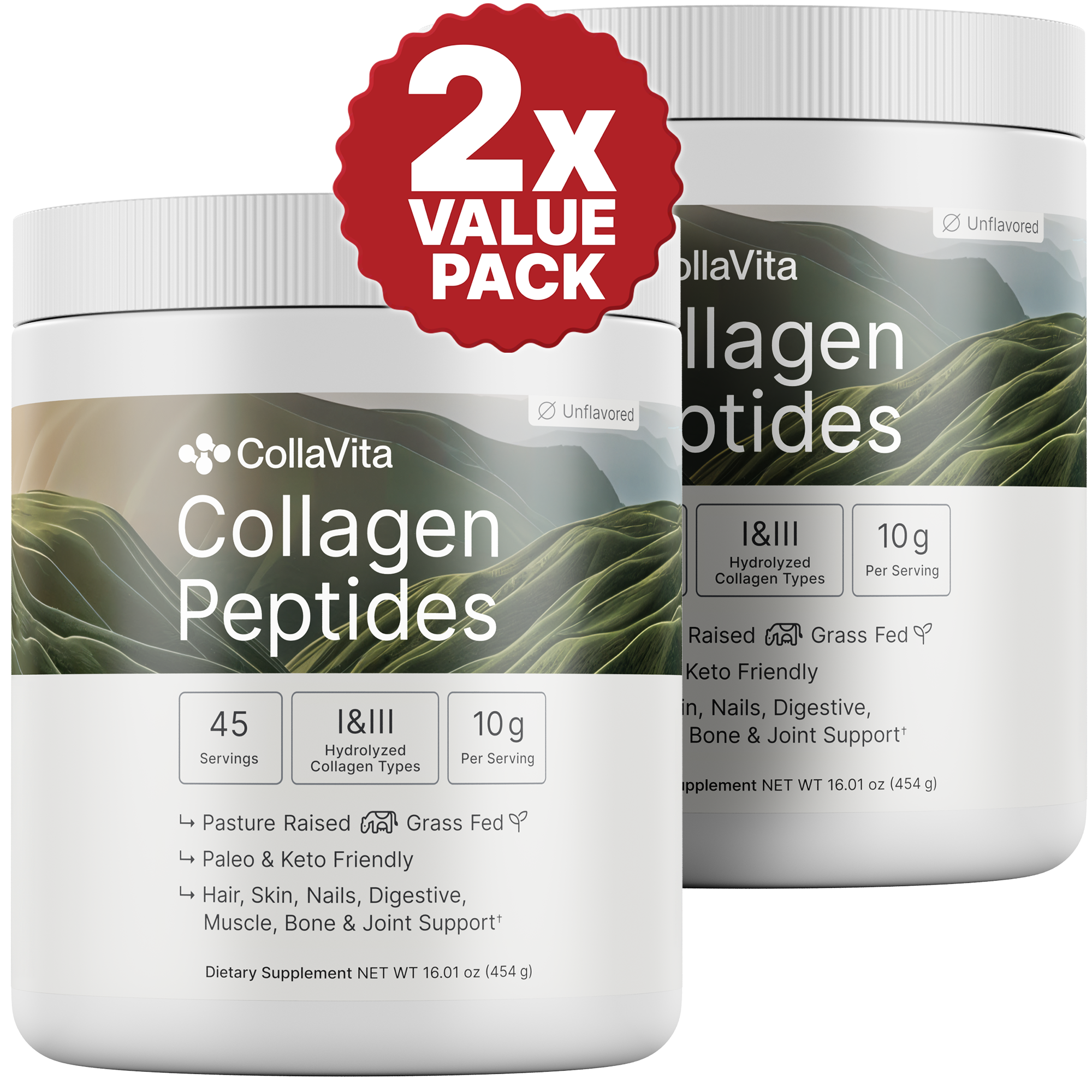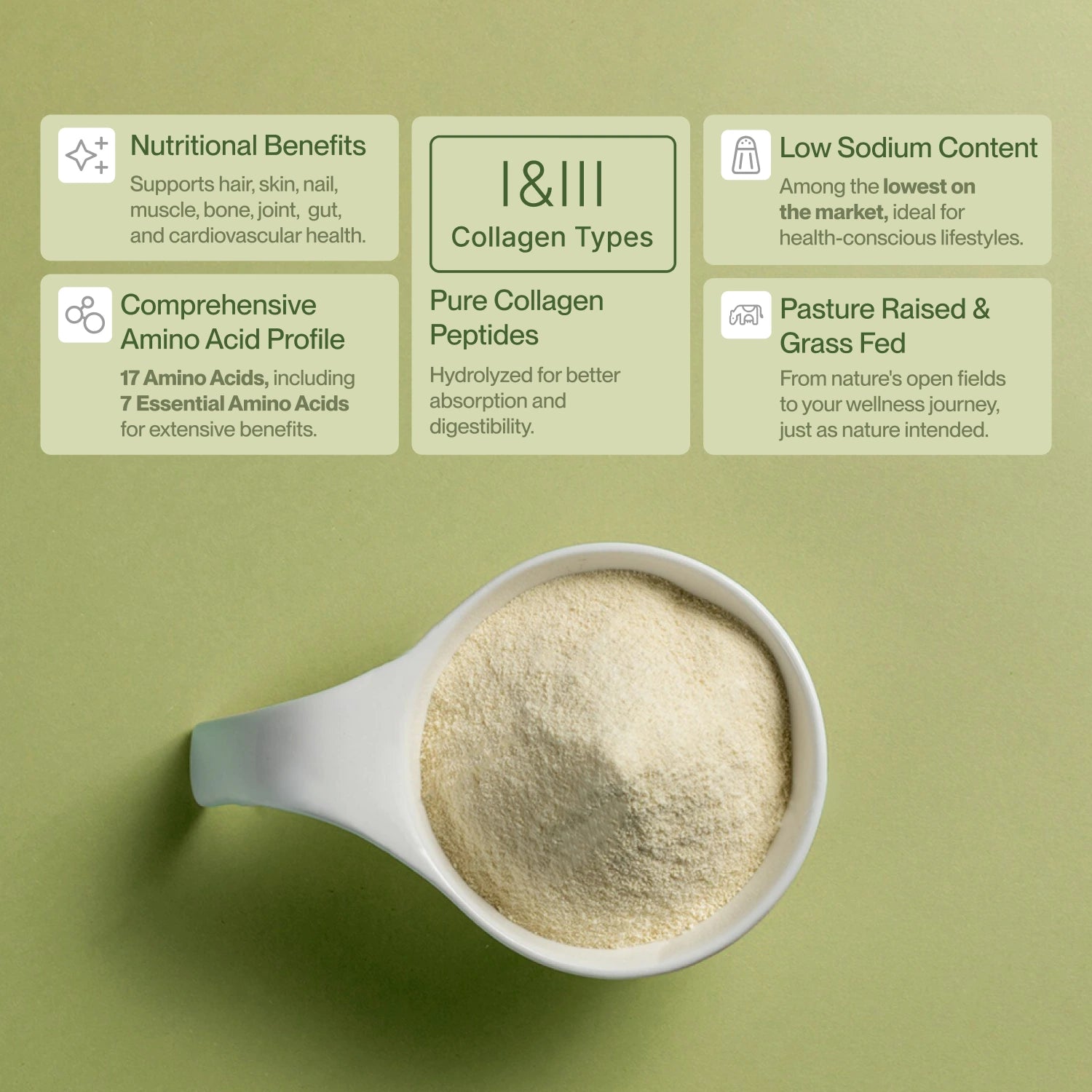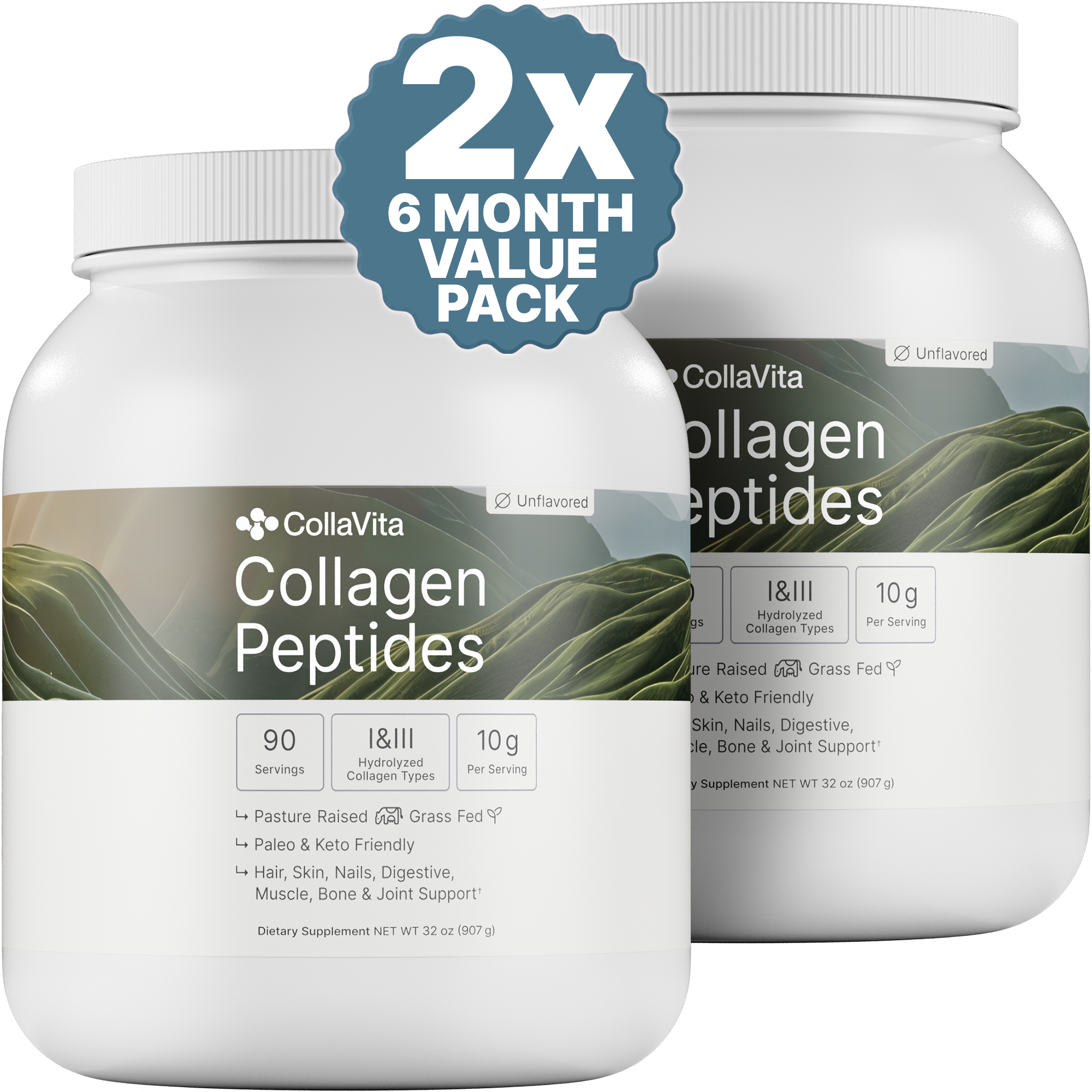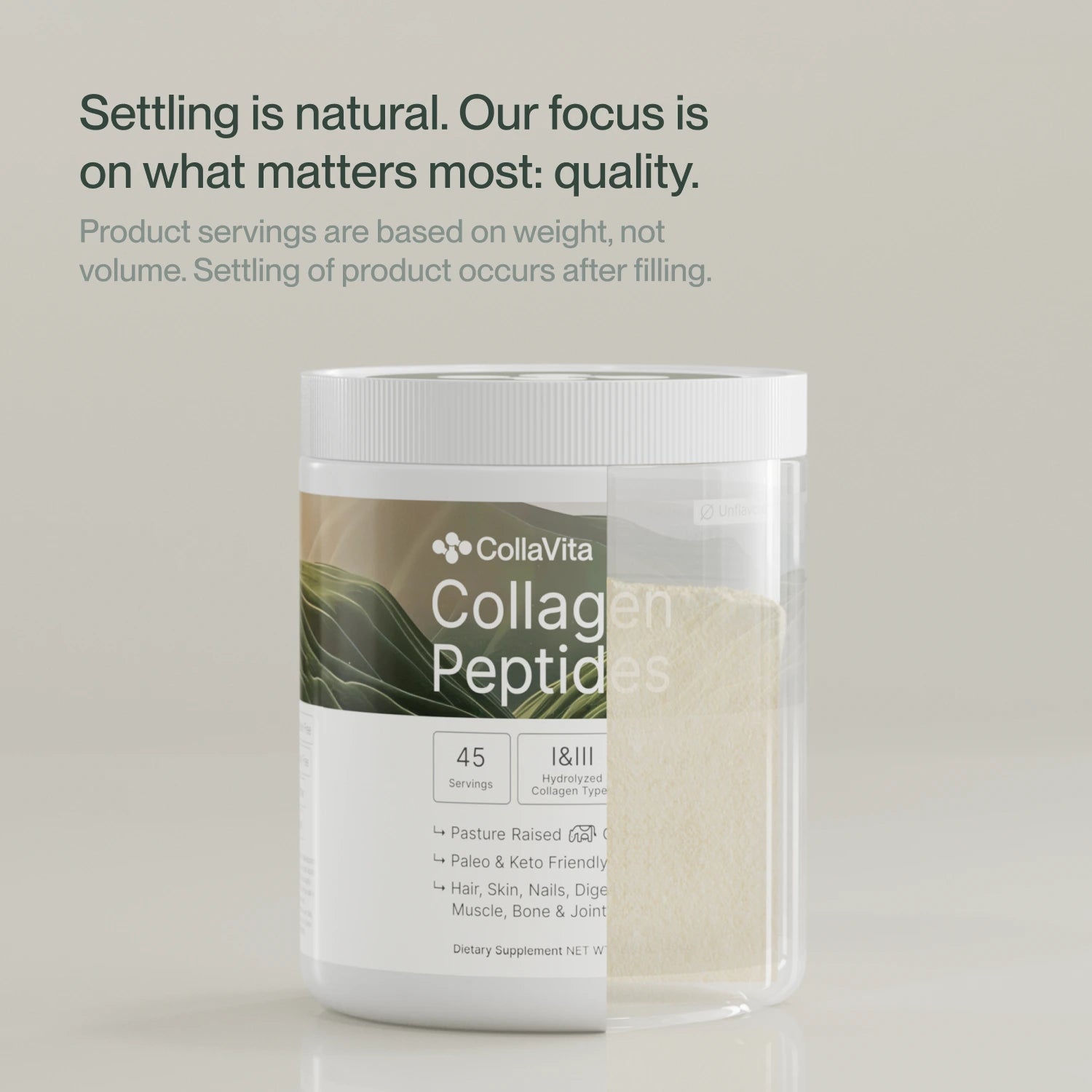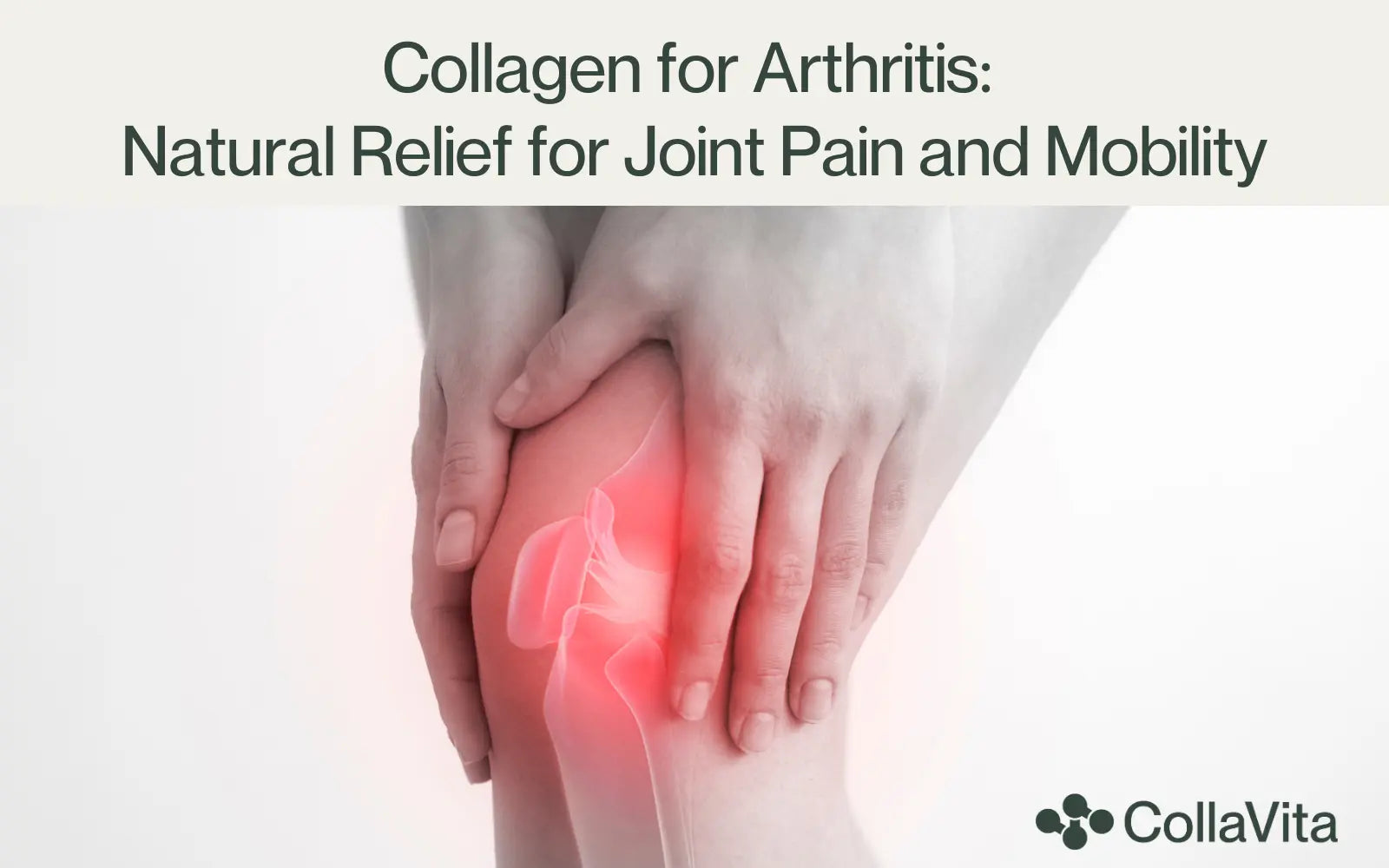How Does Collagen Help with Arthritis Symptoms?
Collagen is essential for keeping your joints moving smoothly and without friction. In arthritis, the cartilage in your joints gets damaged, leading to inflammation, pain, and stiffness. Here’s how collagen supplements can step in to help:
- Stimulates Cartilage Regeneration: Research shows that collagen hydrolysate can encourage your body to produce more type II collagen and proteoglycans. These are crucial components for rebuilding and maintaining healthy cartilage, which can improve joint function and reduce osteoarthritis symptoms.
- Reduces Inflammation: By supporting cartilage health, collagen can help reduce the inflammation that causes pain and swelling in arthritic joints.
Bello AE and Oesser S's 2006 review(1) gathered key findings indicating that collagen hydrolysate stimulates cartilage regeneration, increasing the production of type II collagen and proteoglycans, which can improve joint function and reduce osteoarthritis symptoms. These findings support the idea that collagen supplements could help maintain cartilage health and improve function in arthritic joints. However, the review also notes some methodological limitations in certain clinical studies (e.g., lack of statistical analysis), suggesting a potential benefit rather than providing conclusive proof.
For more general information on how collagen can improve joint health, you can refer to our previous article: How Can Collagen Improve Joint Health?
Which Types of Collagen Are Right for Arthritis?
Not all collagen is created equal. The type of collagen you choose can make a difference in the effectiveness of the treatment for your specific condition.
Type II Collagen for Rheumatoid Arthritis (RA)
Rheumatoid Arthritis is an autoimmune condition where the body's immune system mistakenly attacks the joints. Undenatured Type II Collagen (UC-II) is particularly effective for RA because it works through a process called oral tolerance.
How it helps: Taking small doses of UC-II can help "teach" your immune system to stop attacking its collagen in the joints. This can lead to reduced inflammation, less pain, and a decrease in joint damage. One study demonstrated that Type II undenatured collagen significantly improved joint function and reduced pain in osteoarthritis patients over a 3-month period compared to placebo. This research, conducted by Rahmawati and colleagues, was published in 2023 in the Indonesian Biomedical Journal(2) and highlights the therapeutic potential of UC-II in managing joint-related conditions.
Hydrolyzed Collagen for Osteoarthritis (OA)
Osteoarthritis is the "wear-and-tear" type of arthritis where cartilage breaks down over time, causing pain and stiffness. Hydrolyzed Collagen (also known as collagen peptides) is your best bet here.
How it helps: Hydrolyzed collagen is broken down into smaller, easily absorbed amino acids that your body can use to:
- Rebuild Cartilage: It provides the building blocks to repair damaged cartilage. An experimental study using a mouse model of induced arthritis found that collagen peptides promoted cartilage regeneration and reduced inflammation in joint tissues, indicating disease-modifying potential; this research was conducted by Dar QA, Schott EM, Catheline SE and colleagues in 2017 at the University of Rochester Medical Center, USA(3).
- Reduce Pain and Stiffness: Hydrolyzed collagen supplementation is supported by a meta-analysis showing it generally helps improve osteoarthritis (OA) symptoms, especially in reducing stiffness and overall pain scores. However, the analysis did not find significant improvements in pain and function scores and does not explain how collagen works. These findings come from a meta-analysis titled 'Effect of collagen supplementation on osteoarthritis symptoms: a meta-analysis of randomized placebo-controlled trials' by Juan Mario García-Coronado et al., published in International Orthopaedics in March 2019(4).
- Improve Physical Function: By supporting joint health, collagen can help you perform daily activities with greater ease and mobility. A widely cited review of human clinical trials reported that collagen hydrolysate improved joint pain in both athletes and osteoarthritis patients and was recommended as a nutraceutical for joint health; this review was conducted by Porfírio E and Fanaro GB in 2016 at São Paulo State University, Brazil(5).

What About Other Types of Arthritis?
Collagen's benefits aren't limited to just RA and OA. Here's a look at how it may help other forms of arthritis:
- Psoriatic Arthritis (PsA): In PsA, there is an increased turnover of collagen in the joints. While more research is needed, this suggests that collagen supplements could play a role in managing PsA by addressing this disrupted collagen metabolism.
- Axial Spondyloarthritis (AS): AS is a chronic inflammatory disease affecting the spine. Research has noted disrupted collagen metabolism in AS patients. Collagen's anti-inflammatory properties and role in tissue repair suggest it may help alleviate symptoms.
- Gout: This condition is caused by uric acid crystal buildup in the joints. Type II collagen (CII) may facilitate the development of gouty arthritis by influencing monosodium urate (MSU) crystallization and promoting the recruitment of inflammatory cells, according to a 2023 study published in Annals of the Rheumatic Diseases by Xu et al.(6). The researchers found that after cartilage injuries, higher concentrations of CII are present around MSU crystals in joint fluid. CII appears to enhance the release of inflammatory signals from immune cells (such as macrophages), which then attract additional immune cells to the site.
- Juvenile Arthritis (JA): For children with JA, oral administration of Type II collagen has shown promise in modulating the autoimmune response and improving symptoms without side effects in a small study.
Important Note: If you have any of these conditions, it is crucial to consult your doctor before starting any new supplement.
Is Collagen Safe for Arthritis Patients?
Collagen supplements are generally considered safe and are well-tolerated. However, here are a few things to keep in mind:
- Possible Side Effects: Some people may experience mild side effects such as bloating or diarrhea.
- Allergies: If you have allergies to fish or bovine sources, be sure to choose a supplement that is safe for you.
- Kidney Health: If you have a history of kidney stones or kidney issues, talk to your doctor before taking high doses of collagen.
- Drug Interactions: While rare, it's always best to check with your healthcare provider if you are taking other medications.
Frequently Asked Questions
What is the best form of collagen to take: powder, capsule, or liquid?
This comes down to personal preference. Powders are versatile and cost-effective, capsules are convenient for travel, and liquids offer fast absorption. The most important factors are consistency and the quality of the product.
How much collagen should I take for joint health?
Dosages vary. For Hydrolyzed Collagen, a common dose is between 2.5-15 grams per day, with higher doses often recommended for joint support. For Undenatured Type II Collagen (UC-II), a much smaller dose of just 40 mg per day is typically effective due to its unique immune-modulating effects. Always follow the product's instructions.
When will I see results from taking collagen?
Be patient and consistent! For joint health, you may start to notice relief from pain and stiffness in about 8-12 weeks, with more significant results often seen after 6 months of continuous use.
Are there vegan options for collagen?
Yes! While collagen itself is animal-derived, there are plant-based collagen boosters available. These products provide your body with the necessary nutrients like vitamin C, zinc, and specific amino acids to stimulate its own collagen production.
SOURCES
(1) - T. Aspevik, M. Pedersen, E. Veiseth-Kent & S. Albrektsen. (2024) A Comparative Study of Collagen Proteins in Skin, Bones, and Guts of Atlantic Salmon (Salmo salar L.) and Atlantic Cod (Gadus morhua). Journal of Aquatic Food Product Technology 33:8, pages 683-696.
(2) - Tjandra, O., Gunawan, S., Johan, J., Lie, F. F., Rumawas, M. E., & Limarta, A. (2023). Efficacy and safety of undenatured type II collagen in the treatment of osteoarthritis of the knee: A randomized, double-blind, placebo-controlled trial. Indonesian Biomedical Journal, 15(3), 277–286.
(3) - Dar, Q.-A., Schott, E. M., Catheline, S. E., Maynard, R. D., Liu, Z., Kamal, F., Farnsworth, C. W., Ketz, J. P., Mooney, R. A., Hilton, M. J., Jonason, J. H., Prawitt, J., & Zuscik, M. J. (2017). Daily oral consumption of hydrolyzed type 1 collagen is chondroprotective and anti‑inflammatory in murine posttraumatic osteoarthritis. PLOS ONE, 12(4), e0174705.
(4) - García-Coronado, J. M., Martínez-Puig, D., & Morales-Ávila, G. (2019). Effect of collagen supplementation on osteoarthritis symptoms: A meta-analysis of randomized controlled trials. Journal of Clinical Rheumatology, 25(6), 288-294.
(5) - Porfírio, E. & Fanaro, G. B. (2016). Collagen supplementation as a complementary therapy for the prevention and treatment of osteoporosis and osteoarthritis: a systematic review. Revista Brasileira de Geriatria e Gerontologia, 19(1), 153–164. doi:10.1590/1809-9823.2016.14145
(6) - Xu, H. L., Zhang, B., Chen, Y., Zeng, F., Wang, W., Chen, Z., ... & Zhu, X. (2023). Type II collagen facilitates gouty arthritis by regulating MSU crystallisation and inflammatory cell recruitment. Annals of the Rheumatic Diseases, 82(3), 416-427.
Scientifically Reviwed by Omer (Matt) Sermet


